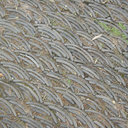Chinese herbal extracts (SK0506) as a potential candidate for the therapy of the metabolic syndrome.
Mo kle
Abstrè
The metabolic syndrome has reached epidemic proportions worldwide, but currently there is a lack of effective therapies for this multifactorial endocrine disease. TCM (traditional Chinese medicine) has been utilized to treat a wide variety of diseases for centuries in the People's Republic of China, subsequently becoming a promising source for the development of new therapeutic agents. Chinese medicinal herbs Gynostemma pentaphyllum, Coptis chinensis and Salvia miltiorrhiza have been shown to have anti-atherosclerotic and antidiabetic properties. In this study, we have investigated the metabolic effects of a mixture of these three herbal extracts (SK0506) in a rodent model of the metabolic syndrome induced by an HFD (high-fat diet). SD (Sprague-Dawley) rats that were fed on an HFD for 4 weeks gained 33% more weight compared with chow-fed rats (P<0.05). Four weeks treatment with SK0506 prevented weight gain with decreased visceral fat (P<0.01 compared with vehicle treatment). SK0506 also significantly reduced plasma triacylglycerols (triglycerides), NEFAs (non-esterified fatty acids) and cholesterol. SK0506 exerted similar effects to RSG (rosiglitazone) on impaired glucose intolerance. SK0506 also significantly enhanced glucose uptake and glycogen synthesis in adipose tissue during hyperinsulinaemic-euglycaemic clamp. Western blotting analysis revealed that SK0506 enhanced GLUT4 (glucose transporter 4) expression in adipose tissue, and RSG markedly up-regulated GLUT4 translocation in skeletal muscle. Overall, the present study has discovered that SK0506 can reverse several components of the metabolic syndrome primarily through acting on hyperlipidaemia and visceral obesity. The results from the present study suggest that it is worthwhile to conduct a randomized clinical trial to confirm the potential that SK0506 may be a new oral agent for treating the metabolic syndrome and preventing Type 2 diabetes.



